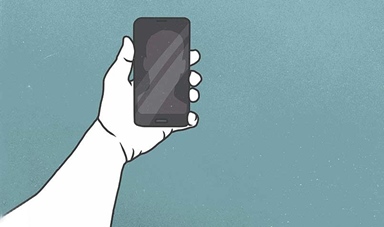Loading component...
At a glance
Pop culture is obsessed with death. From Netflix zombie series Santa Clarita Diet to an apocalypse in practically every Marvel movie, it seems we can’t get enough of it – from a safe distance, that is.
We don’t like death so much when it applies to ourselves. It’s a topic to politely avoid, and preparation for death is a chore many people leave until it’s too late – leading to feuding children, estate disputes and distraught partners.
Now there’s an extra layer of difficulty to dying. Many of our family heirlooms, mementos and assets are digital. For starters, consider your social media profiles on Facebook, LinkedIn and Twitter; email on Gmail or Outlook; photos and journals on Dropbox or Google Drive; entertainment on Netflix and iTunes; and money in online bank accounts and in cryptocurrency digital wallets.
Researchers at the University of Melbourne have found that few Australians systematically download and store their online content in a format accessible to others after their death, meaning a great deal of the content may be lost to family and friends.
Digital accounts are protected by online privacy laws and terms of service, and these have been interpreted differently in various legal cases. In Germany, parents of a 15-year-old girl who died in a train accident were refused access to her Facebook account. However, in another case, the father of a deceased soldier was given access to his Yahoo email, with the court overriding Yahoo’s privacy policies.
How do we bequeath and divide our digital assets? Does your partner have access to your photos on Facebook to remember you by? Most importantly, what happens to our digital accounts after we die? This is where digital wills are important.
What is a digital will?
A digital will is a document that instructs loved ones on how to manage your digital presence and assets after you’re gone.
State Trustees Victoria recommends preparing a digital register, which is a record of accounts, usernames, passwords and requests for closure of online accounts as outlined in an Australian Communications Consumer Action Network (ACCAN) report titled Death and the Internet. The register may accompany your last will and testament, although the laws around it are still not clear.
The same goes for rules around inheritance of digital assets. Rosemary Caruso, partner, wills and estates at Tindall Gask Bentley Lawyers, says they’re as diverse as the internet itself. The obvious solution would be to add an appendix or a register of your digital assets to your standard will. However, Caruso recommends making the digital will a separate, formal document – signed and duly witnessed.
In terms of what goes into the digital will, it is important to understand what you own, what you license, and whether your digital rights outlive you.
“Each digital asset will usually have its own ownership structure and end user licence agreement [EULA], and the answer may differ for each asset,” Caruso explains.
“One big question is whether you actually own the asset – it might just be a licence during your lifetime, which is not transferable after death.”
Addressing the issue of what to add to the register, Caruso advises listing all your online accounts without passwords, because sharing passwords is prohibited by most organisations. However, you could store digital accounts and passwords in encrypted password management software, accessible by a nominated person only upon your death.
Online platforms such as Everplans and Cake offer people an opportunity to store information and plan what happens to their digital assets after death. Similarly, DigiPulse allows digital wallet users to control who inherits their cryptocurrency assets, which can be a valuable service for investors in bitcoin and other digital currencies.
Is there a social media afterlife?
According to the ACCAN report, 69 per cent of Australians are active social media users, but very few know what happens to their social media profiles after they are gone. They are programmed to live forever. In fact, as of 2014, there were 30 million such profiles still on Facebook alone.
Unfortunately, if left unmonitored, social media profiles of people who have passed away are open to identity theft, trolling and data fraud by hackers.
Most social media platforms do provide options to control what happens to accounts after death. Facebook allows a person to nominate a legacy contact who can look after your account, without having actual account access or posting as you. Alternatively, a family member or friend can submit a request for the deceased person’s profile to be memorialised or closed.
Each social platform and online service provider has its own policy for account closures in the event of death. Simple digital legacy planning can protect your privacy, and remove the burden from your loved ones.
Plan your digital legacy
Google: You can add up to 10 trusted contacts, who will receive an email that bequeaths files stored on a Google service if your account is left unattended between three and 18 months.
Facebook: You may nominate a legacy contact to manage your profile after your death. This could be memorialising the page, or closing it.
Instagram: Provides an option to memorialise an account, which means nobody can log in or change it. To memorialise an account, anyone can provide a link to an obituary or news article reporting the death. You can also request account closure.
Twitter: The only option is to deactivate the profile by submitting a form with information on the deceased, including a death certificate.
LinkedIn: Executors, colleagues or friends of the deceased can notify LinkedIn that someone has passed away, so their account can be closed and the profile removed.
iTunes: Music files, television series and films are licensed, rather than owned, and cannot be bequeathed.

